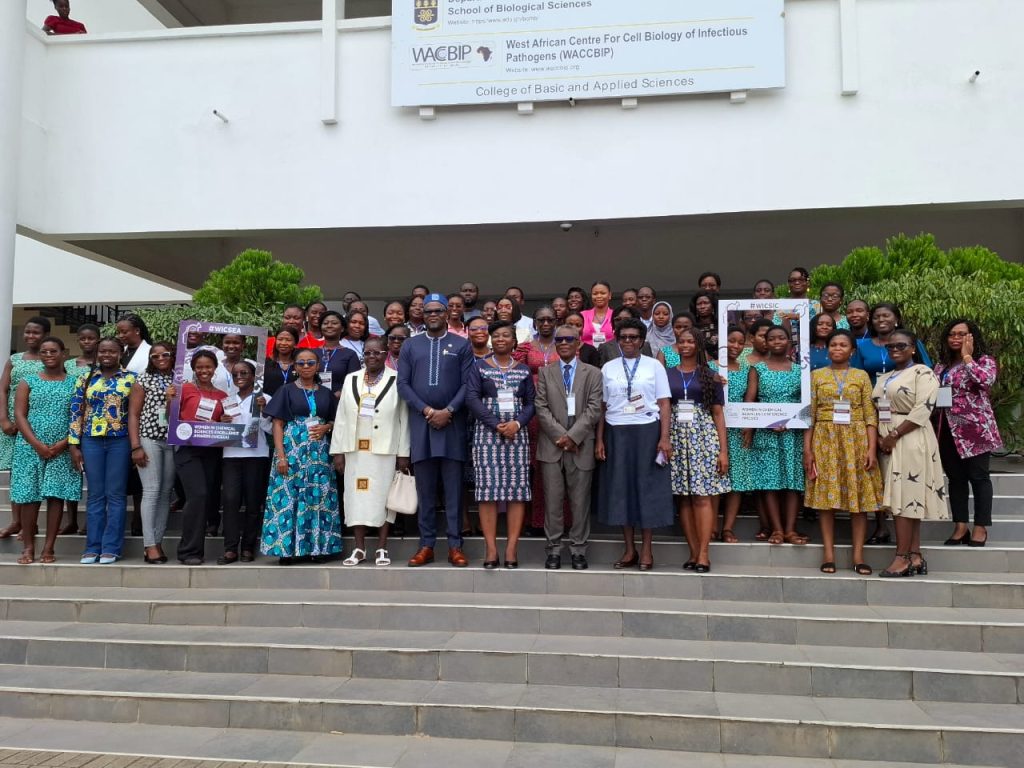By Edward Acquah
Accra, Nov. 18, GNA – The Women in Chemistry Network (WICN) has called for increased investment in research, infrastructure, and funding to enhance the participation and advancement of women in the field of chemical sciences.
The Network identified key challenges, including limited access to education, training, and resources, which hinder women’s ability to conduct cutting-edge research and address emerging regional and global challenges.
Professor Marian Asantewah Nkansah, Founder and Convenor of WICN, made the appeal during the inaugural Women in Chemical Sciences Conference held in Accra.
The conference, which was formally endorsed by the International Union of Pure and Applied Chemistry (IUPAC), was on the theme “Empowering and Celebrating Women in the Chemical Sciences: A Catalyst for Innovative Leadership.”
It was organized in partnership with the West African Science Service Centre on Climate Change and Adapted Land Use (WASCAL), and the Organisation for Women in Science for the Developing World-Elsevier Foundation (OWSD-EF).
Prof. Nkansah emphasized the need to build the capacity of women in chemical sciences by providing platforms for networking, training, and the exchange of ideas and experiences.
She said many women faced barriers in pursuing higher education and careers in the chemical sciences due to cultural stereotypes and a lack of family support, which often led to isolation and neglect in the academic and professional spheres.
“One of the goals of the network is to create an environment where the feeling of isolation and neglect would be cured so that women who venture into the chemical sciences would stay and finish their programmes,” she said.
Prof. Marian D. Quain, Deputy Director-General, Council for Scientific and Industrial Research, and Keynote Speaker at the Conference called for the promotion of science, technology, engineering, and mathematics (STEM) education for women.

She called for enhanced career guidance and support to empower women to overcome the challenges they face in pursuing careers in chemical sciences.
“By empowering women in chemical sciences, we unravel innovative solutions to foster a brighter future for all,” she said.
As part of the Conference activities, the participants toured the Ghana Atomic Energy Commission and the Council for Scientific and Industrial Research-Institute of Industrial Research (CSIR-IIR).
Dr. Latifatu Mohammed, Vice Chairperson of the Conference Organising Committee and Secretary of WICN, said the visit aimed to foster collaboration opportunities for women scientists within those organisations.
“Collaboration in research development is essential for creating sustainable and impactful advancements in science, technology, and innovation, and should be actively promoted,” she said.
The Conference was climaxed with the maiden Women in Chemical Sciences Excellence Awards in Accra, which celebrated the achievements, contributions, and potential of women in the field of chemical sciences.
Prof. Dorcas Osei-Safo, Co-Lead of the Awards Committee, this Awards’ Scheme said recognising the successes of women in chemical Sciences would inspire young girls and women to pursue careers in STEM.
“This will promote the advancement of women in the field, and encourage a more inclusive and diverse scientific community,” she added.
The Women in Chemistry Network is an organisation for professional women with a degree in any of the chemical sciences – Chemistry, Biochemistry, Chemical Engineering and related disciplines.
GNA